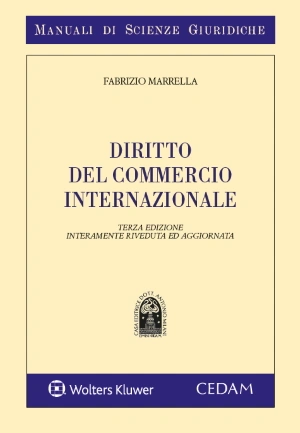Views
A European Law Reading of Achmea
Written by Prof. Burkhard Hess, Max Planck Institute Luxembourg.
An interesting perspective concerning the Achmea judgment of the ECJ[1] relates to the way how the Court addresses investment arbitration from the perspective of European Union law. This paper takes up the judgment from this perspective. There is no doubt that Achmea will disappoint many in the arbitration world who might read it paragraph by paragraph while looking for a comprehensive line of arguments. Obviously, some paragraphs of the judgment are short (maybe because they were shortened during the deliberations) and it is much more the outcome than the line of arguments that counts. However, as many judgments of the ECJ, it is important to read the decision in context. In this respect, there are several issues to be highlighted here: Read more
CJEU on the compatibility with EU law of an arbitration clause in an Intra-EU BIT – Case C-284/16 (Slovak Republic v Achmea BV)
Written by Stephan Walter, Research Fellow at the Research Center for Transnational Commercial Dispute Resolution (TCDR), EBS Law School, Wiesbaden, Germany
Today, the CJEU has rendered its judgement in Slovak Republic v Achmea BV (Case C-284/16). The case concerned the compatibility with EU law of a dispute clause in an Intra-EU Bilateral Investment Treaty (BIT) between the Netherlands and the Slovak Republic which grants an investor the right to bring proceedings against the host state (in casu: the Slovak Republic) before an arbitration tribunal. In concrete terms, the German Federal Court of Justice referred the following three questions to the CJEU (reported here): Read more
The impact of Brexit on the operation of the EU legislative measures in the field of private international law
On 28 February 2018, the European Commission published the draft Withdrawal Agreement between the EU and the UK, based on the Joint Report from the negotiators of the two parties on the progress achieved during the first phase of the Brexit negotiations.
The draft includes a Title VI which specifically relates to judicial cooperation in civil matters. The four provisions in this Title are concerned with the fate of the legislative measures enacted by the EU in this area (and binding on the UK) once the “transition of period” will be over (that is, on 31 December 2020, as stated in Article 121 of the draft).
Article 62 of the draft provides that, in the UK, the Rome I Regulation on the law applicable to contracts and the Rome II Regulation on the law applicable to non-contractual obligations will apply, respectively, “in respect of contracts concluded before the end of the transition period” and “in respect of events giving rise to damage which occurred before the end of the transition period”.
Article 63 concerns the EU measures which lay down rules on jurisdiction and the recognition and enforcement of decisions. These include the Brussels I bis Regulation on civil and commercial matters (as “extended” to Denmark under the 2005 Agreement between the EC and Denmark: the reference to Article 61 in Article 65(2), rather than Article 63, is apparently a clerical error), the Brussels II bis Regulation on matrimonial matters and matters of parental responsibility, and Regulation No 4/2009 on maintenance.
According to Article 63(1) of the draft, the rules on jurisdiction in the above measures will apply, in the UK, “in respect of legal proceedings instituted before the end of the transition period”. However, under Article 63(2), in the UK, “as well as in the Member States in situations involving the United Kingdom”, Article 25 of the Brussels I bis Regulation and Article 4 of the Maintenance Regulation, which concern choice-of-court agreements, will “apply in respect of the assessment of the legal force of agreements of jurisdiction or choice of court agreements concluded before the end of the transition period”(no elements are provided in the draft to clarify the notion of “involvement”, which also occurs in other provisions).
As regards recognition and enforcement, Article 63(3) provides that, in the UK and “in the Member States in situations involving the United Kingdom”, the measures above will apply to judgments given before the end of the transition period. The same applies to authentic instruments formally drawn up or registered, and to court settlements approved or concluded, prior to the end of such period.
Article 63 also addresses, with the necessary variations, the issues surrounding, among others, the fate of European enforcement orders issued under Regulation No 805/2004, insolvency proceedings opened pursuant to the Recast Insolvency Regulation, European payment orders issued under Regulation No 1896/2006, judgments resulting from European Small Claims Procedures under Regulation No 861/2007 and measures of protection for which recognition is sought under Regulation No 606/2013.
Article 64 of the draft lays down provisions in respect of the cross-border service of judicial and extra-judicial documents under Regulation No 1393/2007 (again, as extended to Denmark), the taking of evidence according to Regulation No 1206/2001, and cooperation between Member States’ authorities within the European Judicial Network in Civil and Commercial Matters established under Decision 2001/470.
Other legislative measures, such as Directive 2003/8 on legal aid, are the object of further provisions in Article 65 of the draft.
News
Save the Date: EU Insolvency Law and Third Countries: Which Way(s) Forward?, 26–28 Oct 2023
On 26–28 October 2023, the University of Kiel will be hosting a conference on ‘EU Insolvency Law and Third Countries: Which Way(s) Forward?’. It is part of a research project coordinated by Professors Alexander Trunk (University of Kiel) and Jasnica Garasic (University of Zagreb), which is endorsed by UNCITRAL and supported by the Fritz Thyssen Foundation. It is conducted in cooperation with representatives of the European Commission and the Hague Conference on Private International Law.
At the conference, the first results from the project will be presented and discussed with a larger professional and academic public. The conference will also include a Young Researchers Forum on the morning of 26 October.
The organizers have kindly shared the following documents with us:
Further information can also be found at the project website.
Out Now: Fabrizio Marrella, “Diritto del commercio internazionale / International Business Law”, 3rd edition 2023
The third edition of Fabrizio Marrella’s textbook on international business law has recently published by Wolters Kluwers/Cedam.

The author (Vice-Rector and Chair of International Law at “Cà Foscari” University of Venice, Italy) has kindly provided the following summary for our readers:
After an historical introduction and a clear systematic analysis of key actors and sources of International Business Law, the book focuses on transnational contracts and commercial relationships of companies by deepening international sales (including the first applications of Incoterms ® 2020), contracts of international transport, insurance, commercial distribution, payments and bank guarantees. The leading methodology used by the Author is that of private international law and best operational practices.
The book also sets out the regulation of foreign direct investment in the light of the latest new regulatory and case-law developments. In the final part, the work examines, in one section, ADR mechanisms together with international arbitration and, in the final section, the most relevant international civil procedure rules for businesses.
The book can be found at the publisher’s website here.
Dutch Journal of PIL (NIPR) – issue 2023/2

The latest issue of the Dutch Journal on Private International Law (NIPR) has been published.
NIPR 2023 issue 2
Editorial
C.G. van der Plas / p. 197
Articles
K.C. Henckel, Issues of conflicting laws – a closer look at the EU’s approach to artificial intelligence / p. 199-226
Abstract
While newly emerging technologies, such as Artificial intelligence (AI), have a huge potential for improving our daily lives, they also possess the ability to cause harm. As part of its AI approach, the European Union has proposed several legislative acts aiming to accommodate and ensure the trustworthiness of AI. This article discusses the potential private international law impact of these legislative proposals. In doing so, it – inter alia – addresses how the newly proposed legislative acts interact with existing private international law instruments, such as the Rome II Regulation. In addition, it questions whether there is a need for specific rules on the private international law of AI.


